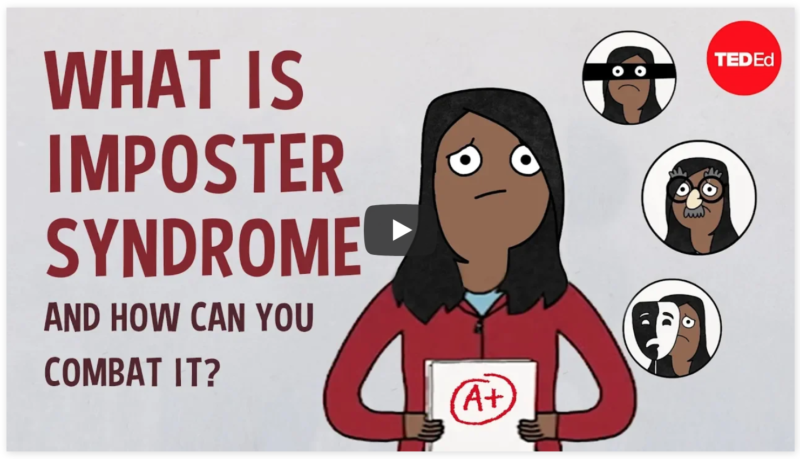Published on November 15, 2018
Written by Courtney Raybould
Marketing & Communications Officer, University of Toronto Scarborough Arts & Science Co-op

Students can be an invaluable resource for solo #PSEWEB pros who are looking to maximize their impact while making a smaller dent in their budget – particularly if you’re looking to convey a day-to-day perspective of the student experience.
That said, unless your institution has a professional writing, journalism, public relations, film/photography, or marketing program, chances are the students in your hiring pool will require some element of training, which can add a layer of complexity to your already-full schedule. If you’re anything like me, you likely don’t want to book a full training session that features you as a talking head; particularly when there are so many others out there who are smarter than you.
To make your life easier, here are a few of my go-to training tips & resources that I like to build into my student training sessions:
1. Persuasion and the Power of Story: Jennifer Aaker
This is an excellent 5-minute explainer video by social psychologist Jennifer Aaker that helps to explain why students’ stories matter in the context of the institution.
2. Write with Voice and Tone
By Kelly McBride, via Poynter’s NewsU
The e-learning project of US-based journalism school The Poynter Institute, NewsU offers a variety of free and paid PD resources including webinars, self-directed courses, and workshops on a broad range of topics. This webinar is a great introduction for student bloggers who haven’t thought critically about their writing before, prompting them to reflect on their own styles.
3. Shooting and Editing Mobile Phone Photography
By Elise Swopes, via CreativeLive
Swopes is a Chicago-based artist specializing in photography, influencer marketing, and graphic design, and can give great tips to budding photographers on your team.
PROTIP: Subscribe to CreativeLive’s newsletter to hear about course sales, which they run often.
4. Peer-led Skills Workshops
Have senior students on the team or someone who has mastered the skill you’re trying to convey? Leverage their abilities by having them run a workshop for their peers.
5. What is Imposter Syndrome and How Can You Combat iIt?: Elizabeth Cox

Whether they’ve heard of imposter syndrome already or not, I think it’s a valuable reminder that most everyone, at some point, feels like they don’t belong in the role that they have. This is a particularly pertinent message for student bloggers and vloggers who think that their lives aren’t interesting enough to document, but it’s applicable to other roles, too.
6. Bio-writing Session
One of the first challenges I throw out to my student teams is to write themselves a nice pithy bio with a few caveats: it needs to be compelling, unique, and can’t include a selection of lazy words — chosen by me — that happens to be annoyingly in season: think nondescript adjectives such as “random”, “ranty”, etc. Choose a word count and use the bios as a dual-purpose icebreaker with the rest of the team.
7. Workshopping
In theatre, a piece is workshopped before formal staging; in writing, workshopping involves developing an idea or piece through small group interaction. I’ve run workshops with student bloggers where they’ve identified an upcoming post that they’d appreciate feedback on and have discussed it with the rest of the team prior to publication. This is likely most successful once a team is well-established with a good level of trust, simply due to the potential for vulnerable conversations. That said, it’s also a great opportunity to develop team cohesion, with a team-wide sense of success and support when the post is finally published.
8. Speak With Conviction: Taylor Mali
It’s not often that I get to use slam poetry to train students, but this piece by Taylor Mali is an excellent provocation to get students thinking about the way they communicate. I’ve used it in training sessions for campus tour guides, but it carries over nicely to any content creators who are using their voice to convey a message.
9. Guest Speakers
Leverage your personal and professional connections to bring in local pros who can add insight, richness, and depth to your training curriculum. I’ve been lucky enough to have welcomed friends, alumni, and colleagues in my training sessions to help broaden a team’s perspectives in what they’re doing (or why they’re doing it), or to teach them a new skill.
10. Allow Space for New Questions
Sometimes students can be too shy to admit that they need help with something, so it’s great to create an opportunity to discuss those types of questions. We’ve written questions down anonymously and put them in a hat, then drew and discussed them as a supportive group. This can also be a great litmus test for where your student team is as a whole; are the questions what you expected? More complex? Simpler? Consider using them to inform your development curriculum in the future.
Do you work with student content creators? How do you keep them at the top of their game?
If you don’t work with student creators, what’s one thing that’s holding you back?